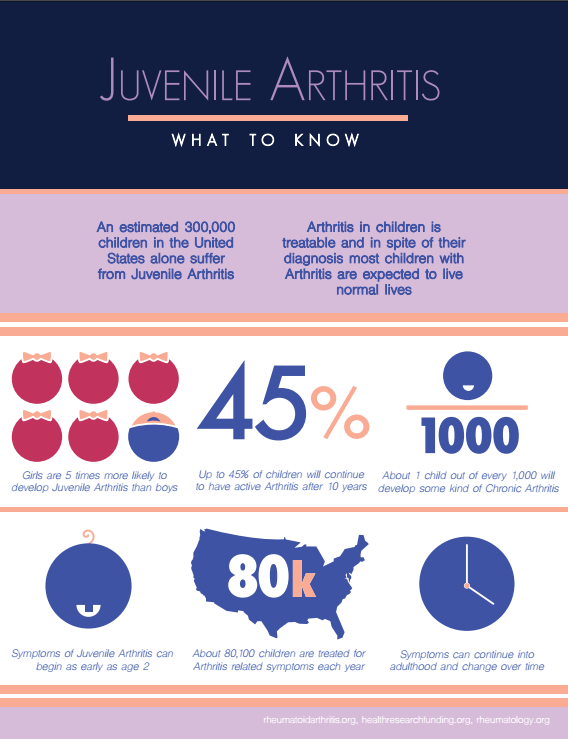By Sue Perbody 1) Relieving Morning Stiffness You can prevent morning stiffness by sleeping in sweat clothes, a sleeping bag or by taking a hot shower. Keeping the joints warm helps prevent them from stiffening up, which is a good way to measure how active a child’s Arthisis is. 2) P...
By Sue Perbody
1) Relieving Morning Stiffness
You can prevent morning stiffness by sleeping in sweat clothes, a sleeping bag or by taking a hot shower. Keeping the joints warm helps prevent them from stiffening up, which is a good way to measure how active a child’s Arthisis is.
2) Physical Activity
Making sure a child stays active is a good way to help keep bones and muscles resilient and maintain their ability to remain mobile. Keeping active also helps prevent weight gain, which can add extra tension on the joints. Certain activities are highly recommended for those with joint pain, such as bike riding or swimming.
3) Therapeutic Exercise
Children with Arthritis are recommended to see a physical or occupational therapist to help learn how to do proper stretches to help strengthen the joints and gain a strong range of motion.
4) Nutrition
Having a healthy diet at any age is always good. There is no particular diet affilated with helping children with Juvenile
Idiopathic Arthritis (JIA), but having a diet that is low in saturated fats and processed food helps. Having healthy meals high in vegetables, fruits, fish, nuts and beans will help ease soreness.
5) Emotional Issues
It’s important to educate your child about their Arthritis and the treatments they receive. This way, they feel as though they have some control in what choices are being made. Having constant communications will help the child feel that they are not in this alone, especially when they go through flair ups.

